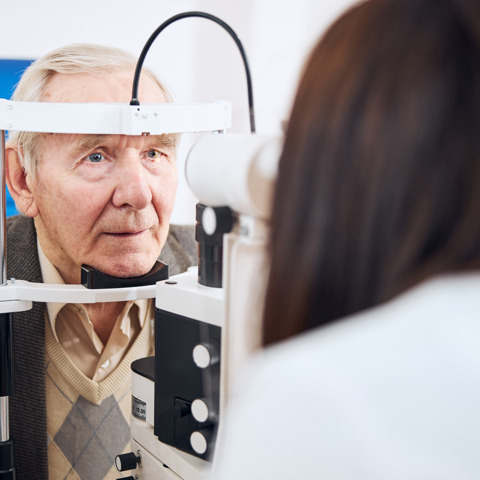
Artificial intelligence technology to assist with diabetes eye screening
A novel artificial intelligence solution could reduce vision loss for people with diabetes.
The University of Liverpool has announced a successful funding application for AI-Sight, with an aim to commercialise a next generation artificial intelligence (AI) system that could revolutionise diabetic eye screening.
New funding for the project will help develop the software device to support retinal scans.
More than 500 million people globally are estimated to be living with diabetes, and 40% of patients have diabetic retinopathy.
As the most common form of blindness, AI Sight’s artificial intelligence screening technology will have a global social and economic impact.
Applying the technology to diabetic retinopathy, AI-Sight combines human expertise and machine judgement to interpret and rank retinal images across severity of the condition and treatment intervention points, reducing the need for expensive and scarce medical expertise.
The technology has been trained on more than 1.6 million images to date. It is a highly sensitive and specific, web-based screening system that uniquely measures and displays the level of certainty of every automated image analysis, easily integrated into different healthcare systems and can interpret images from any retinal camera.
The AI system was conceived by academics at the University of Liverpool’s Department of Eye and Vision Science.
Dr Steven Powell, Chief Executive Officer at University of Liverpool, said: “Our mission is to take our unique AI approach to image interpretation from the lab bench to the global market, in support of diabetic patients and their clinical teams to ultimately reduce the societal impact of diabetes induced blindness.”
Professor Simon Harding, Chief Medical Officer of AI-Sight, said: “Vision loss from diabetes is such a huge global challenge and prevention is only possible through organised screening. With the conclusion of our successful funding round, it is an exciting time for AI-Sight, advancing our ground-breaking technology towards allowing affordable screening programmes and a profound impact on the lives of people with diabetes worldwide.”
Diabetes is a lifelong condition where blood glucose levels are higher than normal. This causes damage to small blood vessels in organs throughout the body, including the eye (diabetic retinopathy), resulting in vision loss and ultimately blindness.
Diabetic retinopathy screening to prevent blindness has been recommended by the World Health Organization (WHO). It aims to identify disease at an early enough stage to allow sight saving interventions. However, the number of expert personnel required to operate a screening programme is vast.
Read the DRWF diabetes information leaflet Eye health and diabetes
I would like to make a regular donation of
I would like to make a single donation of
There are lots of ways to raise money to support
people living with all forms of diabetes.
Bake, Swim, Cycle, Fly ... Do It For DRWF!
Fundraise with us
Recent News


